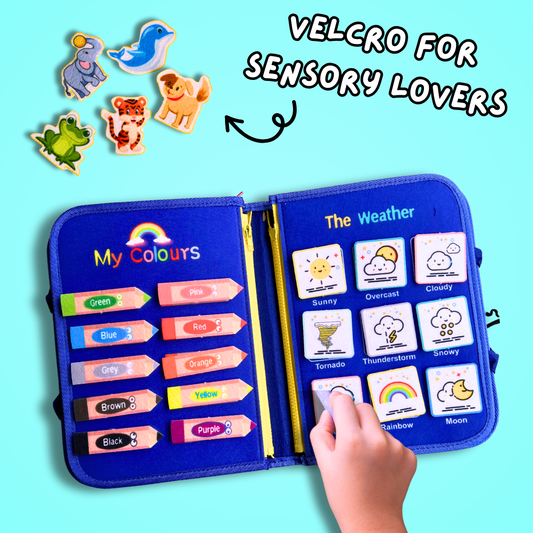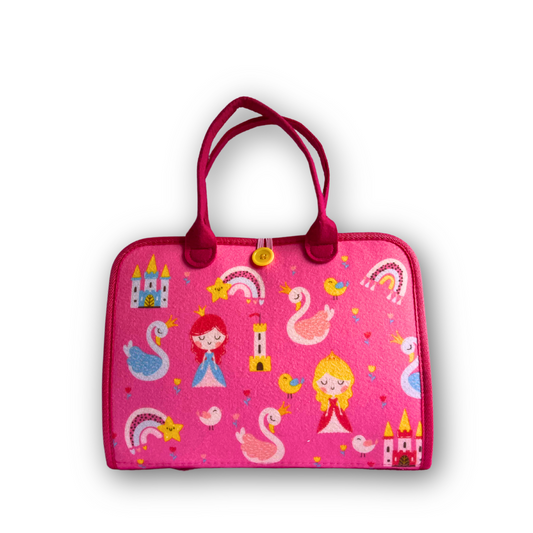
The Importance of Milestones
Share
Child development is an exciting and dynamic process, marked by incredible changes as children grow and evolve. From the early stages of infancy, when babies are primarily reacting to their surroundings and dependent on their caregivers, to later childhood when they begin to make sense of the world around them and act independently, this journey is shaped by both biological factors and the environment.
As a parent, tracking your child's developmental milestones is a useful way to monitor their progress. However, it’s important to remember that while most children follow similar patterns of development, the rate at which they reach these milestones can vary significantly from one child to another. This variation is influenced by a combination of genetic factors, family dynamics, social environment, and even health history.
What Are Developmental Milestones?
Developmental milestones are specific skills or behaviours that most children can accomplish at a certain age. These milestones serve as guidelines to help you assess your child’s growth, but it’s essential to understand that every child is unique. Some children may reach these milestones earlier or later than others, and that’s perfectly normal.
Key developmental milestones include physical achievements (like rolling over, sitting up, or walking), cognitive skills (such as problem-solving and language development), and social-emotional growth (like forming relationships or playing independently). The order in which children reach these milestones tends to be consistent, but the timing can vary.
When to Be Concerned: Developmental Red Flags
While every child develops at their own pace, there are certain signs that may indicate developmental concerns. These include:
Qualitative Abnormalities: This might include issues such as a lack of interest in social interactions, difficulty staying engaged with tasks, or poor awareness of the context in which the child is working.
Disordered Developmental Sequence: Some children may display unusual patterns, such as standing before sitting, or showing advanced skills in one area (like reading) while struggling with another (like speaking).
Severely Delayed Development: If your child is not meeting key milestones—such as not sitting up by 10 months, not walking by 18 months, or not using single words by 18 months—it’s a good idea to consult a healthcare professional.
Regression: If a child loses previously acquired skills, this is also a concerning sign. For instance, if a child who could once say simple words stops speaking or loses the ability to perform tasks they previously could do, it’s important to seek guidance.
How Can Parents Help?
Parents play a crucial role in recognizing developmental delays. By keeping an eye on your child’s behaviours and achievements, you can help identify areas where they may need additional support. To better understand your child’s progress, try these approaches:
Ask Open-Ended Questions: Discuss your observations with your paediatrician or a child development expert using specific examples of your child’s behaviour across different areas of development.
Consider the Whole Picture: It’s not just about how your child is developing, but also the context—consider factors like family dynamics, health history, and social environment when discussing development.
Engage in Observations and Play: Children’s interactions during playtime can provide valuable insights into their developmental stage. Activities such as building with blocks, colouring, or playing pretend games can highlight their fine motor skills, social engagement, and problem-solving abilities.
Assessing Development: What to Look For
When evaluating your child’s development, it's not just about whether they can complete a task, but how they complete it. Here are some things to consider during play-based assessments:
Attention and Awareness: Does your child focus on tasks, and can they demonstrate interest and engagement with toys or activities?
Self-Organization: How well does your child initiate play or solve problems on their own?
Interaction: How does your child respond to social cues and interact with others during play?
Developmental assessments often involve using age-appropriate toys and activities, like puzzles, books, and pretend play sets, which can give you a clearer picture of your child’s abilities.
Understanding Developmental Delays
When concerns about developmental delays arise, it’s important to remember that the process of diagnosing a developmental issue is complex. Developmental charts can be helpful in providing age ranges for typical milestones, but there’s more to it than just comparing your child to a set of norms. It’s important to consider the quality of your child’s abilities and the broader context in which they are developing.
If a child’s developmental progress is significantly behind that of their peers, it might be categorized as a "delay" (moderate or severe). However, focusing on your child’s strengths, interests, and challenges can often give a better understanding of their needs, rather than focusing on labels.
Conclusion: A Holistic Approach to Child Development
Child development is a continual process of adaptation. Children are constantly striving to make sense of the world around them, and their development is shaped by both biological factors and the environment they grow up in. It’s essential for parents to stay observant, engage with their children in meaningful ways, and seek professional advice when needed.
By combining careful observation, open communication with healthcare providers, and understanding the full context of a child’s development, parents can ensure that their child gets the support they need to thrive. Remember, every child is unique, and a balanced approach to tracking their progress will help guide you through the ups and downs of this exciting journey.






